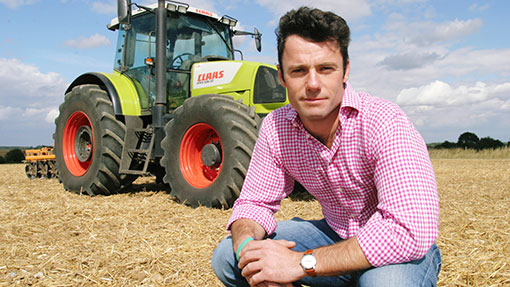Opinion: Blackgrass battle has just begun

Farmers are a homogeneous bunch to the outside world, but in reality each sector is incredibly varied.
They have unique challenges, be it the financial and emotional strain experienced by beef and dairy farmers dealing with TB, deadlines in the fresh produce sector or the battles some poultry farmers have with campylobacter.
For arable farmers, our nemesis has historically been the British weather. If, however, you farm on predominantly clay, water-retentive soils then blackgrass may be your Waterloo.
A little more than a decade ago, this weed was seen as a controllable irritation. Now, for many it is a rampant, pernicious, herbicide-resistant, yield-robbing threat.
So why does this very arable-specific problem hold any interest or relevance to those without a combine harvester? Bluntly, this crisis shows how quickly a problem can escalate if we do not think far enough ahead.
Critics will also claim this is the outcome of the government’s disconnection of scientific research from commercial farming and its lack of emphasis on knowledge transfer from the 1990s until recently.
The blackgrass problem is also partly of our own making. Many (me included) have blindly expected the solution to be forthcoming from the agrochemical manufacturers.
Farmers have failed to pay enough attention to the suite of controls at our disposal, such as wheat variety, seed rates, rotation, stale seed beds and fertiliser timings.
A decade ago we did not heed the warnings. Assuming that this curse was geographically isolated, I and many others took a naïve “it won’t happen to me” approach. Only recently, I heard an agronomist proudly tell an audience: “We don’t have a blackgrass problem”. Neither did I five years ago.
Few shouldered the short-term losses of a wider rotation to include spring cropping to give longer-term gains and sustainability. That, and our over-reliance on the limited chemistry available, has enabled the weeds.
Not only have farmers abused the chemistry by using multiple low doses but also the lack of chemical diversity has stimulated blackgrass resistance.
A recent announcement by the HGCA and BBSRC (Biotechnology and Biological Sciences Research Council) of a £2.8m investment to tackle the problem is encouraging.
It will be a collaborative approach between a levy board and six university research departments, working with farmers to draw up a national picture.
By combining genomic approaches, weed ecology and agronomy, the research hopes to understand how herbicide resistance manifests itself. They will also be developing diagnostics to aid early detection.
The lion’s share of BBSRC’s funding comes from the Department for Business, Innovation and Skills. While Defra has continued to reduce its contribution to the pot, it is vitally important for our industry that BBSRC places value on the work of the levy bodies to translate upstream science into practical measures.
If the government ever questions why they should be investing in – or at least match-funding – scientific research and development, they only need to study the history of blackgrass. Farmers have taken huge backward steps in the battle against this weed due to insufficient investment in applied research over the past 15 or 20 years.
Ian Pigott farms 700ha in Hertfordshire. The farm is a LEAF demonstration unit. Ian is also the founder of Open Farm Sunday
What do you think about this topic? Have your say on our website forums .
